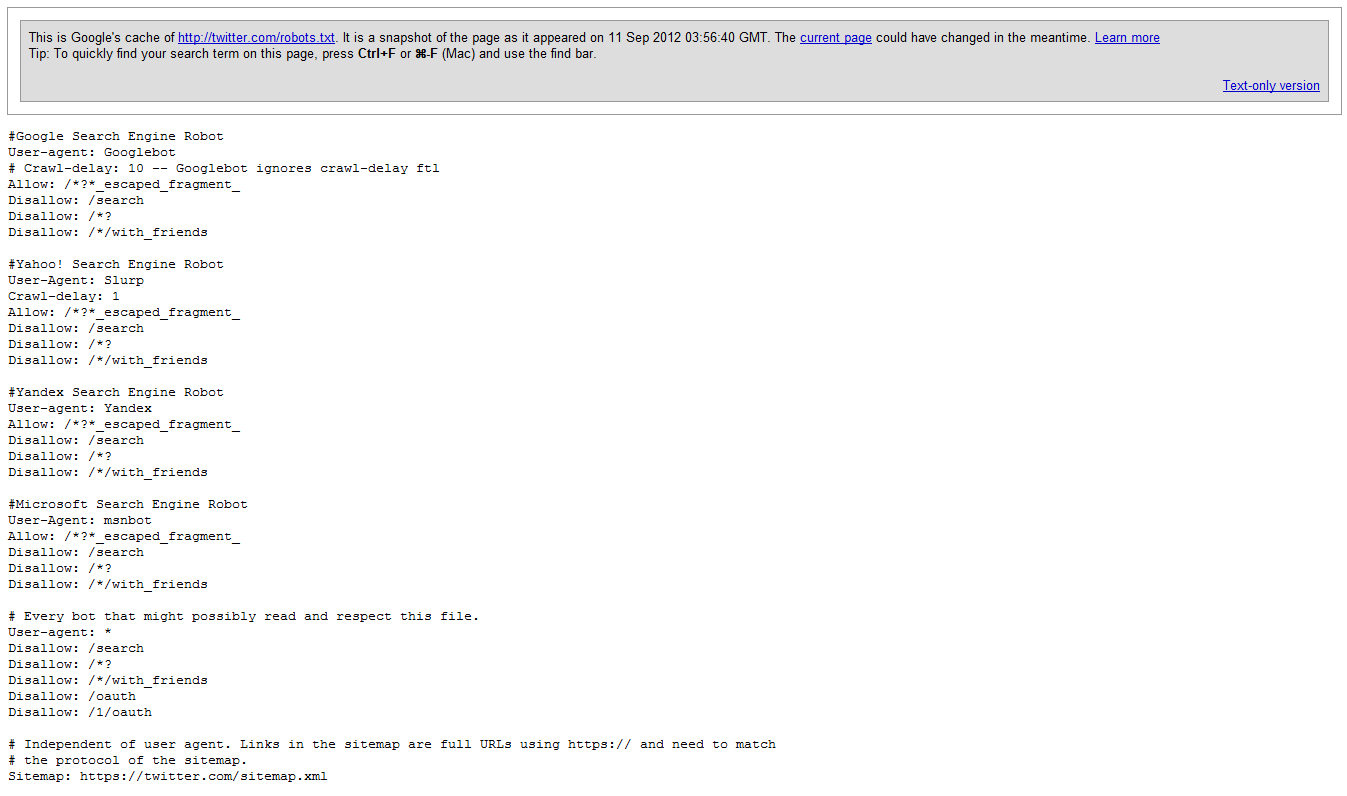File this under intriguing: Twitter has made several changes to its instructions to search engines today which indicate that the social network is looking to become more visible in your search results.
Twitter’s robots.txt file – a small file that webmasters use to allow or prevent search engines from indexing parts of their sites – was changed today to allow search engines to index more of its site.
Specifically, Twitter is now allowing Google, Yahoo!, Bing, Yandex, and others, to index its own search results pages. Until today Twitter had prevented its search pages from being indexed.
Twitter’s current robots.txt file tells search engines that they can now index twitter.com/search pages but are not allowed to index searches for users, or searches for images or videos (Disallow: /search/*/grid).
Twitter’s current Robots file
Allow: /search
Disallow: /search/users
Disallow: /search/*/gridDisallow: /*?
Disallow: /*/with_friends
As recently as September 11 Twitter’s robots file prevented indexing of all search content. e.g;
Allow: /*?*_escaped_fragment_
Disallow: /search
Disallow: /*?
Disallow: /*/with_friends
Twitter has never fully prevented search engines from indexing its content but the site has been less visible in search results over the past 18 months. Previously, Twitter had an agreement with Google which allowed real time Twitter content to appear in Google search results – that agreement expired in July 2011 and has not been renewed.
Twitter has been undergoing a series of changes of late; some, such as the launch of redesigned profiles last week, have been received well while others, such as the increased limitations on developer access, have been controversial.
This change seems to be designed to give Twitter more visibility but we’ll have to wait and see how Google, Bing, and the others view the newly accessible content.













